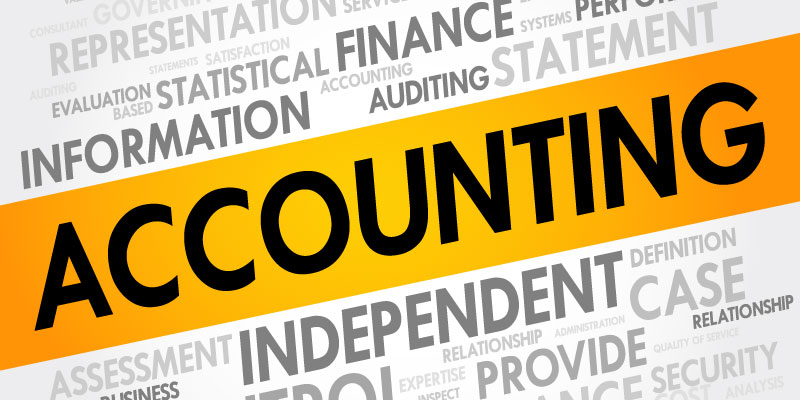Accounting is essential for every business, regardless of size, industry, or type. It is a vital parameter that highlights what’s going on in your business and how weak or strong your financial position is. Despite being an essential requirement for all companies, it is surprising that many business owners are unaware of the importance of accounting.
Why Is Accounting Services Important for Businesses in the UAE?
The importance of accounting cannot be overstated, no matter where your business operates, what industry you are in, or how large your company is. Although it can be time-consuming and complex, accounting services help facilitate:
- Transparency and accountability of your financial records
- Accurate analysis of business outcomes
- Maintenance of critical receipts, expense bills and payments
- Strengthening of shareholders’ trust in the company
- Strong foundation for internal and external reports
- Maintenance of old records for comparison with new ones
- Implementation of the latest accounting practices
Accounting is an essential part of running a business in the UAE, and various accounting practices are in place. If your business is a part of the UAE ecosystem, it is best you know about these accounting practices. So, let’s go straight into the details.
7 Types of Accounting Practices UAE Businesses Must Know About
1. Financial Accounting
As per its name, this process involves accounting for all the financial transactions in a business. Many businesses in the UAE turn to account services to hire financial accountants who create financial reports comprising a summary of all the financial dealings and transactions. These reports are based on global or local accounting standards. During financial accounting, experts track your organisation’s financial health based on:
- Incoming credits
- Outgoing debits
- Obligations
- Movement of money within the company
A company’s financial statements usually comprise:
- Balance sheet
- Profit and loss account
- Statement of change in equity
- Cash flow statement
2. Cost accounting
Cost accounting is the process of examining the various costs that an organisation incurs when creating finished goods, such as variable costs, fixed costs, and miscellaneous costs. Cost accounting is a critical process, especially for manufacturers, since it gives them a clear picture of the inventory, expenses, supply and product pricing.
An essential step in the cost accounting process is to find variations between the evaluated costs and the actual expenses incurred during product production. This helps identify inefficiencies in the production process and take corrective action to ensure the prices are reduced or maintained at the desired level. Cost accounting also helps make decisions related to pricing, budgeting, and controlling costs.
3. Management Accounting
Management accounting is very similar to financial accounting and is usually a job responsibility for management accountants. The process involves monitoring the company’s financial health and generating reports facilitating smarter business choices.
Accounts nowadays rely on various statistical tools like Simulation Theory, Linear Programming, project appraisal, and ratio analysis to present insightful data to aid the decision-making process. But management accounting does not end here. The method also covers:
- Pattern evaluation
- Analysis of qualitative, non-financial business aspects
- Business forecasting and estimation
The analytics derived from management accounting aids decision-making and enable effective resource management.
4. Forensic Accounting
Forensic accounting is all about detecting fraudulence and embezzlement of the company’s financial resources. The prime objective of conducting forensic accounting is to gather ample evidence to prove any financial discrepancies in the court of law.
A forensic accountant’s job is quite similar to that of a forensic scientist. They look for potential financial misconduct by investigating the organisation’s financial records. They use their accounting skills to interpret their findings and produce evidence to solve the issue.
5. Chartered accounting
The chartered accounting process includes:
- Financial statement analysis
- Risk assessment
- Strategy development
- Guidance on the best financial practices for organisations
All these processes are handled by chartered accountants with well-developed accounting skills and adept at managing a wide range of areas from management to auditing. These highly-trained professionals pass a rigorous set of exams to become certified chartered accountants and have years of experience in the field of accounting.
6. Tax accounting
Tax accounting is exactly what it sounds like- It is all about assessing a company’s tax liabilities, how much tax they should pay the government and why. A tax accountant’s job is to:
- Interpret complex and ever-changing tax legislation
- Track all transactions that affect tax payments
- Calculate the amount of tax the company owes to the government
- Maintain tax records as per the UAE VAT laws
UAE-based businesses must pay only the Value Added Tax or VAT, imposed at a meagre rate of 5%. According to UAE’s VAT tax rules, any business whose exports and imports exceed the limit of AED 375,000 per annum must apply for VAT. At the same time, companies whose VAT-subjected exports and imports exceed AED 187,500 per annum can also opt for voluntary VAT registration. The UAE VAT law also states that tax registrants must keep records for five years after the end of the tax period.
7. Accounting Information Systems or AIS
AIS or Accounting Information Systems perform various accounting functions like:
- Collecting and processing transactional data
- Conveying financial data to interested parties
- Collaborating with the IT department to ensure economic continuity during technology implementation.
Stay Accountable With the Help of Reliable Accounting Services in UAE
All accounting practices are drafted by experts and based on the general accounting principles as per the existing laws. In the UAE, accounting firms like Fortius Consulting deploy the latest technologies to ensure your accounting records are impeccable. Our accounting services empower your business with proven practices that enable complete transparency to help your business sustain for years to come.






